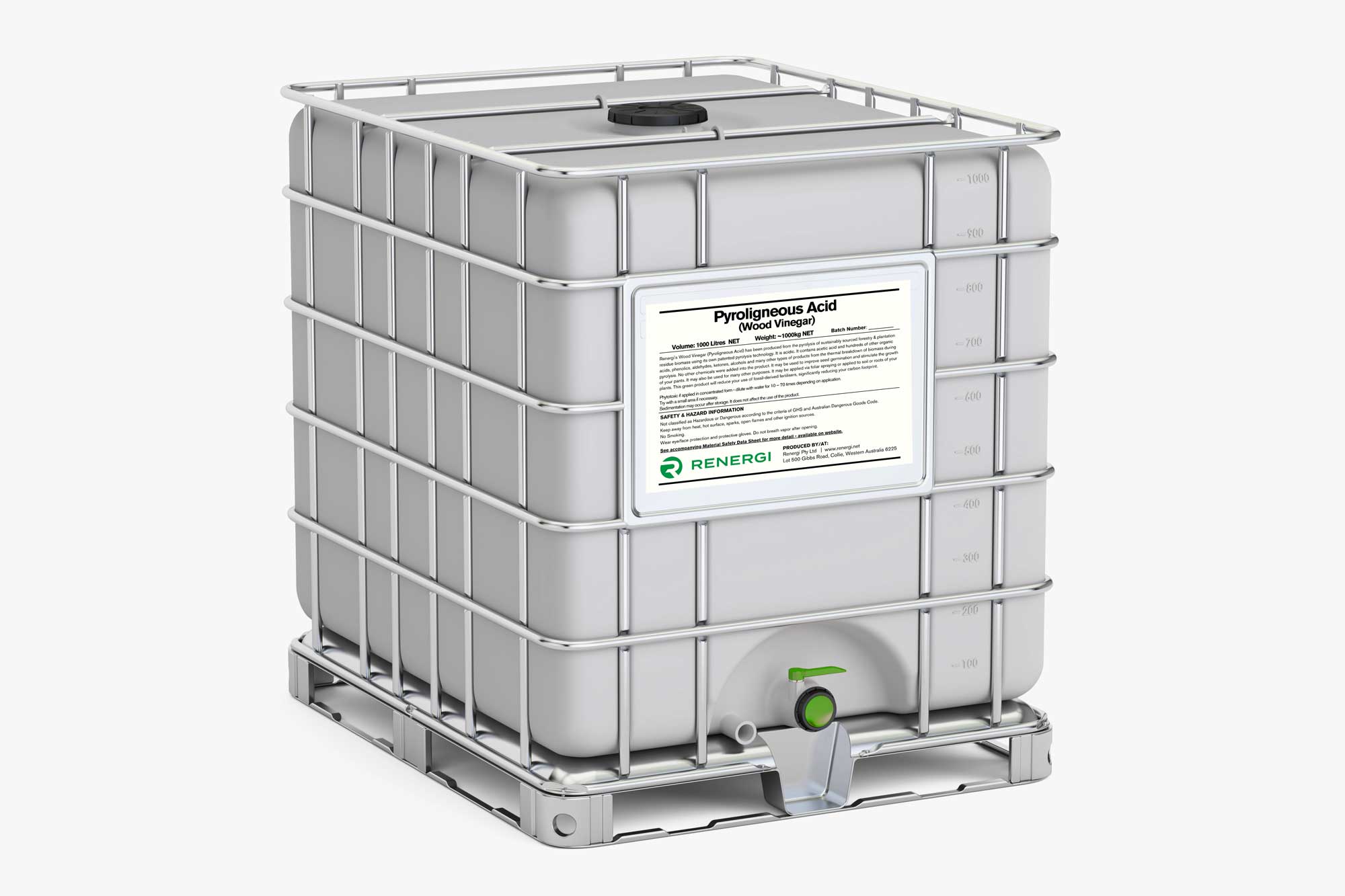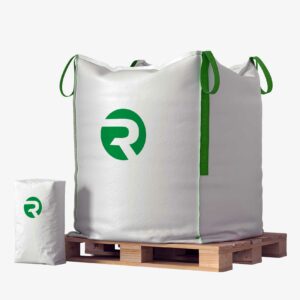Description
Short description:
Pyroligneous Acid (wood vinegar) is produced through condensing of various bio-gases and bio-oils from a process called pyrolysis: the carbonisation of biomass under conditions of relatively high heat and low or no oxygen that also produces biochar. It contains a complex mix of biologically active compounds such as, but not limited to: organic acids, phenolics, aldehydes, ketones, furans, karrikins, and sugar-type compounds. These combine to provide different beneficial growth activating and plant health functions, such as improving photosynthesis, nutrient and water adsorption, seed germination (karrikins), and antioxidant, disinfectant and antibacterial properties. It offers growers a natural low-harm and sustainable alternative to boost plant vigour and increase resilience to pests, disease, and drought, and enhance soil biology for healthier and more productive crops. It can be used as a foliar spray, soil drench, as a germinator or seed soak, or combined with or alongside other products when seeding
Key Properties:
Renergi’s Pyroligneous Acid (wood Vinegar) generally has a pH of between 3.1 and 3.4 with a composition typically made up of several groups of organic compounds:
Natural acids.
The most prominent is acetic acid, which is a chemical species found in edible vinegar, giving rise to the acidity of vinegar. The name “wood vinegar” originates from the fact that it contains acetic acid and other carboxylic acids (e.g. formic acid, propanoic acid and levulinic acid) and is made traditionally from wood (but can be made of many other biomass types). This functional group assists with pest deterrence, nutrient release/uptake such as making essential nutrients like iron and manganese more accessible to plants, and soil health/structure by promoting microbial activity with better aeration and nutrient cycling.
Phenolics.
A wide range of substituted phenolics are present in wood vinegar. Examples include 2,6-dimethoxyphenol (syringol), 2-methoxyphenol (guaiacol), 3,5-dimethoxy-4-hydroxytoluene, 2-methoxy-4-methylphenol (creosol), benzene-1,2-diol (catechol) and phenol. Phenolics have many beneficial functions, for example, Creosol is a disinfectant. Other phenolics contained in Renergi’s Pyroligneous Acid (wood Vinegar) are responsible for providing antioxidant properties.
Aldehydes, ketones and furans.
Examples include 2-hydroxyacetaldehyde, hydroxyacetone and furfural. Aldehydes and ketones play a crucial role in the biosynthesis of plants serving as antioxidants and signalling molecules. In soil, these compounds help influence nutrient availability and the growth and development of plant roots, as well as the microbial activity that supports soil health.
Sugar type compounds.
For example, Levoglucosan which is a versatile carbohydrate synthon, used in the synthesis of pharmaceuticals, natural products, and bioethanol production and frequently used as a chemical tracer for biomass burning in atmospheric chemistry, highly correlated with regional fires. Levoglucosan’s unique bicyclic structure and inherent chirality make it an excellent starting material for creating complex organic molecules, making it an important component in wood vinegar’s benefits to plant and soil health.
Karrikins.
This is a group of plant growth regulators found in the smoke of burning biomass. They are very effective in triggering the germination of seeds in bushfire-prone regions, with many species only germinating following a fire. The name “karrikin” is from the Aboriginal (Noongar in WA) word “karrik”, meaning smoke.
Additional information
Applications:
The most common and effective application of Pyroligneous Acid (wood vinegar) is in agriculture, whether applied:
– at the seed germination stage;
– in furrow when seeding;
– directly to the soil as a drench to the plant roots and surrounding soil;
– as a foliar spray;
-or to speed up and improve composting (improving microbial activity and reducing nitrogen gas losses).
– Renergi Pyroligneous acid (wood vinegar) can also be used in combination with Renergi biochar, as a ‘pre-quench’ or activation.
Usage guidance:
Dilution rates depend on the desired application purpose and method. It is phytoxic if used in a concentrated form (no dilution). For use as a biostimulant, dilution rates with water are recommended anywhere between 10 and 100x. Lower dilution rates will be more effective for applications targeting pest and disease deterrence and resilience. An application of ~5L per hectare is considered an effective starting point. It is recommended to first apply to some small test areas.

